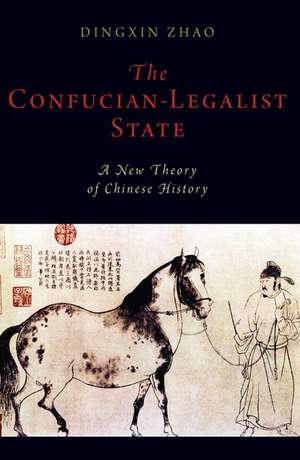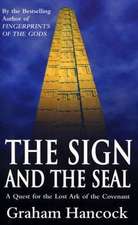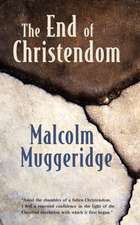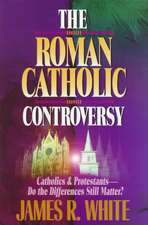The Confucian-Legalist State: A New Theory of Chinese History: Oxford Studies in Early Empires
Autor Dingxin Zhaoen Limba Engleză Paperback – 7 iun 2018
| Toate formatele și edițiile | Preț | Express |
|---|---|---|
| Paperback (1) | 318.01 lei 32-37 zile | |
| Oxford University Press – 7 iun 2018 | 318.01 lei 32-37 zile | |
| Hardback (1) | 706.02 lei 32-37 zile | |
| Oxford University Press – 10 dec 2015 | 706.02 lei 32-37 zile |
Preț: 318.01 lei
Preț vechi: 359.73 lei
-12% Nou
Puncte Express: 477
Preț estimativ în valută:
60.85€ • 63.99$ • 50.28£
60.85€ • 63.99$ • 50.28£
Carte tipărită la comandă
Livrare economică 07-12 aprilie
Preluare comenzi: 021 569.72.76
Specificații
ISBN-13: 9780190886950
ISBN-10: 0190886951
Pagini: 472
Ilustrații: 12 illus.
Dimensiuni: 231 x 155 x 28 mm
Greutate: 0.66 kg
Editura: Oxford University Press
Colecția OUP USA
Seria Oxford Studies in Early Empires
Locul publicării:New York, United States
ISBN-10: 0190886951
Pagini: 472
Ilustrații: 12 illus.
Dimensiuni: 231 x 155 x 28 mm
Greutate: 0.66 kg
Editura: Oxford University Press
Colecția OUP USA
Seria Oxford Studies in Early Empires
Locul publicării:New York, United States
Recenzii
A surprisingly rich new macro-historical approach to Chinese civilization.... This wide-ranging work of thoughtful analysis is as refreshing as it is sound, and will repay the reading of anyone interested in understanding China.
[N]o earlier historians of the modernization school have attempted to make their case with such a thorough discussion of all of history (with the exception of Mark Elvin, who saw a revolution on all fronts in the middle period and stagnation thereafter); have done so in a manner that casts new light on the interpretation of early history; or have taken early modern Europe as a comparative frame for all of China's history. It is a strong defense of the liberal position in China today against those scholars and politicians who claim that China's future can be positively related to its past.
[H]istorical sociologists, comparative historians, and historians of China should all welcome The Confucian-Legalist State. It represents a major effort to think at a macrolevel about China's historical development.
Empirically rich and conceptually clear, Zhao's work combines vast historical evidence, cutting-edge social theories, and rigorous analytical strategy to present a compelling case of why China's pattern of state formation diverged from Europe's more than two millennia ago, creating a Confucianist-Legalist centralized bureaucratic state that lasted into modern times. It is historical social sciences at its best. This book is going to change our view on Chinese history forever.
This is a brilliant, major book. It is ambitious in every sense. Zhao attempts to rewrite both macro-sociological theory and Chinese historical development, and he gives a new answer to the old question of why Europe ultimately developed and China did not. He largely achieves these ambitious goals through an extraordinary combination of erudition and analytical power.
This book offers an intriguing and not uncontroversial explication for a two-part problem of compelling interest today: (1) why was China able to achieve a unified, bureaucratic empire by the Qin dynasty? and (2) why did the imperial institutions and ideology forged in the Qin-Han period show such great resilience over two millennia? Zhao, in moving away from the simplistic narratives offered in all too many textbooks, provides us a fresh look at complicated historical processes that deserve our reconsideration.
[N]o earlier historians of the modernization school have attempted to make their case with such a thorough discussion of all of history (with the exception of Mark Elvin, who saw a revolution on all fronts in the middle period and stagnation thereafter); have done so in a manner that casts new light on the interpretation of early history; or have taken early modern Europe as a comparative frame for all of China's history. It is a strong defense of the liberal position in China today against those scholars and politicians who claim that China's future can be positively related to its past.
[H]istorical sociologists, comparative historians, and historians of China should all welcome The Confucian-Legalist State. It represents a major effort to think at a macrolevel about China's historical development.
Empirically rich and conceptually clear, Zhao's work combines vast historical evidence, cutting-edge social theories, and rigorous analytical strategy to present a compelling case of why China's pattern of state formation diverged from Europe's more than two millennia ago, creating a Confucianist-Legalist centralized bureaucratic state that lasted into modern times. It is historical social sciences at its best. This book is going to change our view on Chinese history forever.
This is a brilliant, major book. It is ambitious in every sense. Zhao attempts to rewrite both macro-sociological theory and Chinese historical development, and he gives a new answer to the old question of why Europe ultimately developed and China did not. He largely achieves these ambitious goals through an extraordinary combination of erudition and analytical power.
This book offers an intriguing and not uncontroversial explication for a two-part problem of compelling interest today: (1) why was China able to achieve a unified, bureaucratic empire by the Qin dynasty? and (2) why did the imperial institutions and ideology forged in the Qin-Han period show such great resilience over two millennia? Zhao, in moving away from the simplistic narratives offered in all too many textbooks, provides us a fresh look at complicated historical processes that deserve our reconsideration.
Notă biografică
Dingxin Zhao is Max Palevsky Professor of Sociology at the University of Chicago and the author of The Power of Tiananmen: State-Society Relations and the 1989 Beijing Student Movement.

































